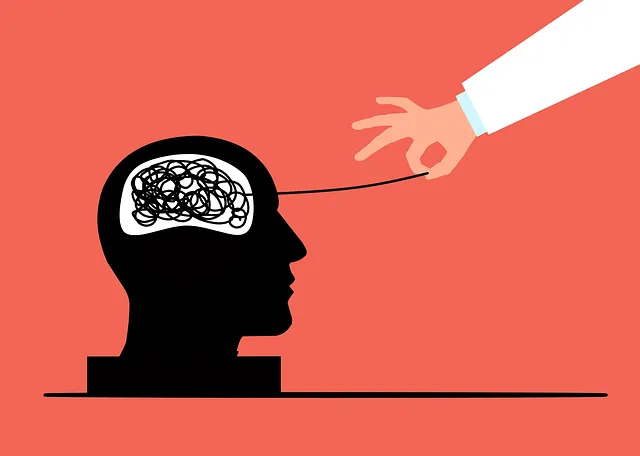In Lafayette, where access to Kaiser Permanente mental health jobs is available, stigma remains a significant barrier. To combat this, Kaiser Permanente employs strategies like promoting self-care and empathy among professionals, creating a supportive environment for open mental health discussions. Through community engagement initiatives such as the Mental Wellness Podcast Series and workshops on cultural sensitivity, they dispel myths and empower individuals to seek help. Policy changes advocated by organizations like Kaiser Permanente aim to educate and create inclusive environments, reducing stigma and promoting understanding, especially in underserved communities. These efforts make mental healthcare more accessible in Lafayette.
Mental illness stigma remains a significant barrier to accessing care, affecting millions. This article explores strategies to reduce this harmful perception, focusing on efforts by organizations like Kaiser Permanente and its commitment to mental health jobs in Lafayette. We delve into the dual role of mental health professionals: providing treatment and challenging stigma. Additionally, we discuss community engagement strategies and policy advocacy, highlighting their crucial roles in fostering a more supportive society for those facing mental health challenges.
- Understanding Stigma: Barriers to Seeking Help and the Role of Mental Health Professionals in Overcoming Them (Focus on Kaiser Permanente's mission and mental health jobs in Lafayette)
- Community Engagement Strategies: Building Awareness and Promoting Empathy through Education and Support Networks
- Policy Changes and Advocacy: A Pathway to Systemic Stigma Reduction in Healthcare and Workplace Settings
Understanding Stigma: Barriers to Seeking Help and the Role of Mental Health Professionals in Overcoming Them (Focus on Kaiser Permanente's mission and mental health jobs in Lafayette)

Mental illness stigma continues to be a significant barrier that prevents many individuals from seeking much-needed help. For those living in communities like Lafayette where access to mental health resources, such as Kaiser Permanente mental health jobs, is available, understanding and overcoming this stigma are crucial steps towards fostering mental wellness.
At Kaiser Permanente, mental health professionals play a vital role in reducing the stigma associated with mental illness. Through initiatives focused on self-care routine development for better mental health and empathy building strategies, these professionals aim to create a supportive environment where individuals feel comfortable discussing their mental health challenges openly. By integrating these strategies into care plans, Kaiser Permanente not only provides exceptional treatment but also fosters a culture of understanding and acceptance, making it easier for folks in Lafayette to access the care they deserve.
Community Engagement Strategies: Building Awareness and Promoting Empathy through Education and Support Networks

Community engagement is a powerful tool in the fight against mental illness stigma. By bringing people together, organizations like Kaiser Permanente can facilitate meaningful conversations and foster understanding. One effective strategy is through educational initiatives, such as hosting Mental Wellness Podcast Series Production events or workshops, where experts share insights on various aspects of mental health. These platforms encourage open dialogue, debunk myths, and promote positive thinking, all while emphasizing the importance of early intervention and support networks.
In Lafayette, for instance, Kaiser Permanente has initiated programs that focus on Cultural Sensitivity in Mental Healthcare Practice, ensuring diverse communities feel seen and heard. By engaging with local groups and offering accessible resources, they’ve created a safe space for individuals to share their experiences and connect with others facing similar challenges. Such efforts not only reduce stigma but also empower individuals to seek help and support, ultimately enhancing the overall mental wellness of the community.
Policy Changes and Advocacy: A Pathway to Systemic Stigma Reduction in Healthcare and Workplace Settings

Policy changes and advocacy play a pivotal role in systemic stigma reduction efforts related to mental health. Organizations like Kaiser Permanente, with its commitment to mental well-being, can lead the way through policy initiatives and by fostering community engagement. For instance, designing and implementing Mental Health Education Programs that target both healthcare settings and the workplace can significantly contribute to changing public perceptions. These programs aim to educate employees about mental illness, promoting understanding and empathy, especially in diverse work environments like the Kaiser Permanente mental health jobs Lafayette.
Advocacy also involves supporting initiatives for Community Outreach Program Implementation, which can help reach underserved populations and reduce the stigma associated with seeking mental healthcare. By empowering individuals with coping skills development, these efforts create a supportive environment, ensuring those struggling with mental illness receive the necessary support without fear of judgment or discrimination. Such systemic changes are crucial in fostering an inclusive society where mental health is prioritized and treated with the same urgency as physical well-being.
Mental illness stigma reduction is a multifaceted endeavor that requires the collective effort of healthcare professionals, community organizations, and policy advocates. As demonstrated by Kaiser Permanente’s commitment to mental health jobs in Lafayette, engaging communities through education and support networks can significantly reduce barriers to seeking help. Policy changes aimed at systemic transformation in healthcare and workplace settings are also crucial steps towards creating a more inclusive and supportive environment for those living with mental illness. By combining these strategies, we can foster empathy, dispel myths, and ultimately, enhance the well-being of individuals affected by mental health conditions.






